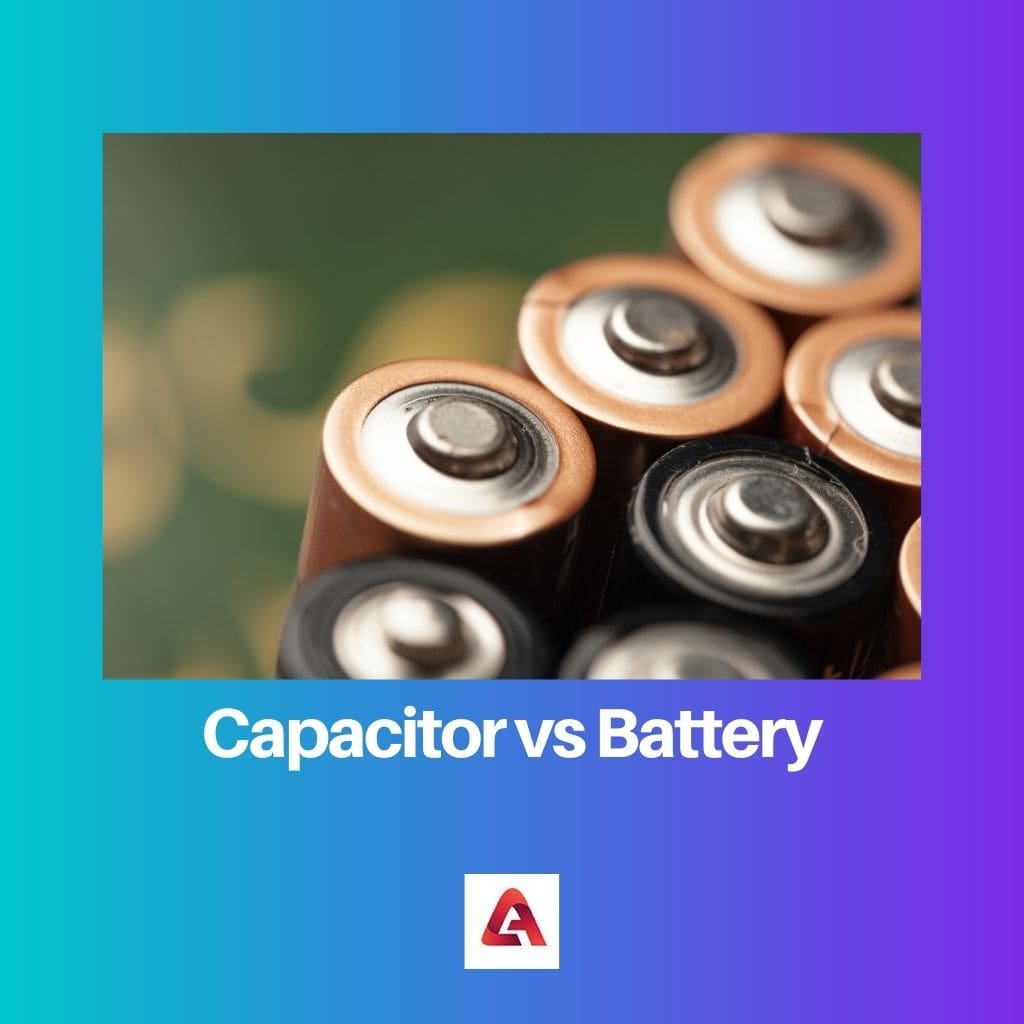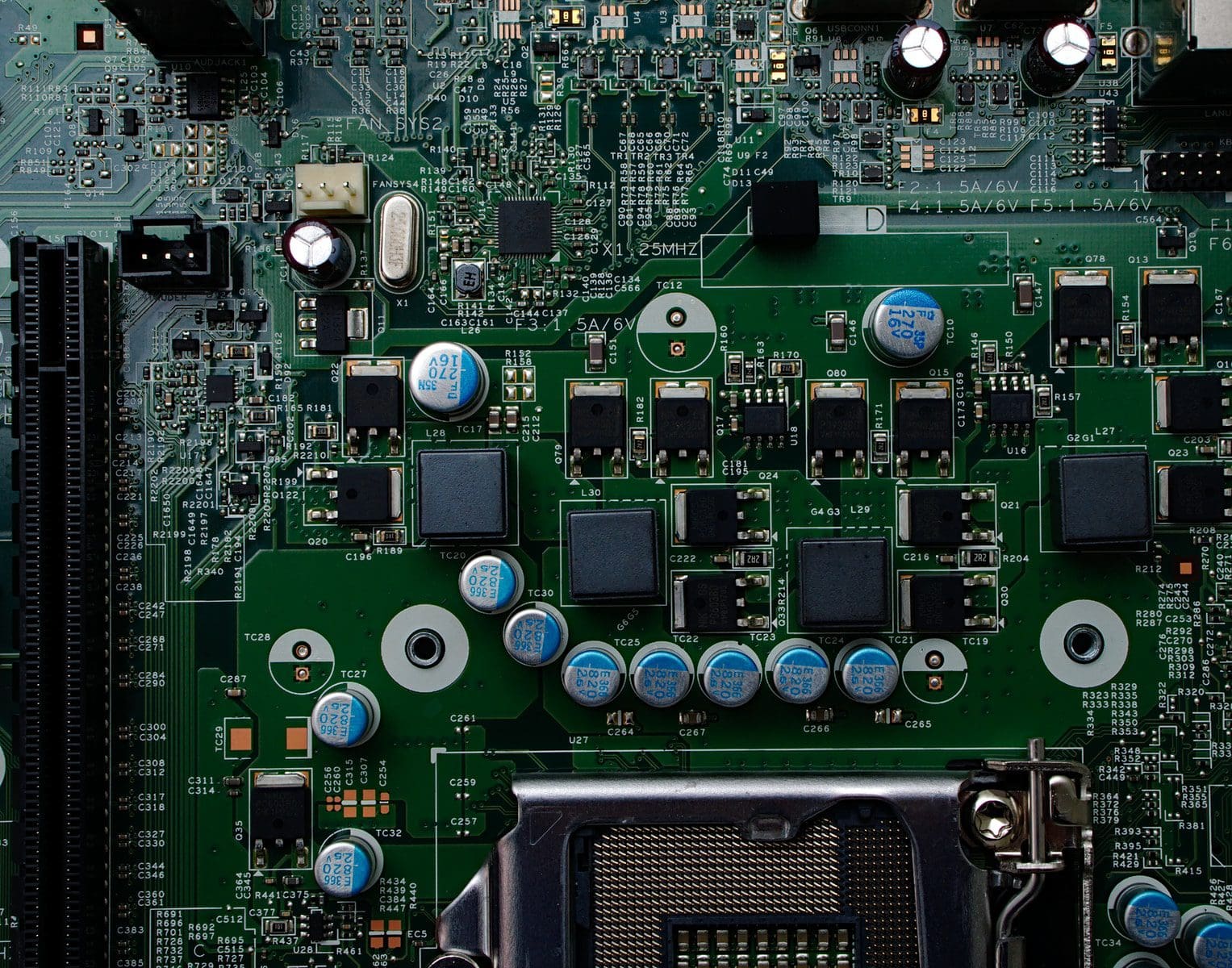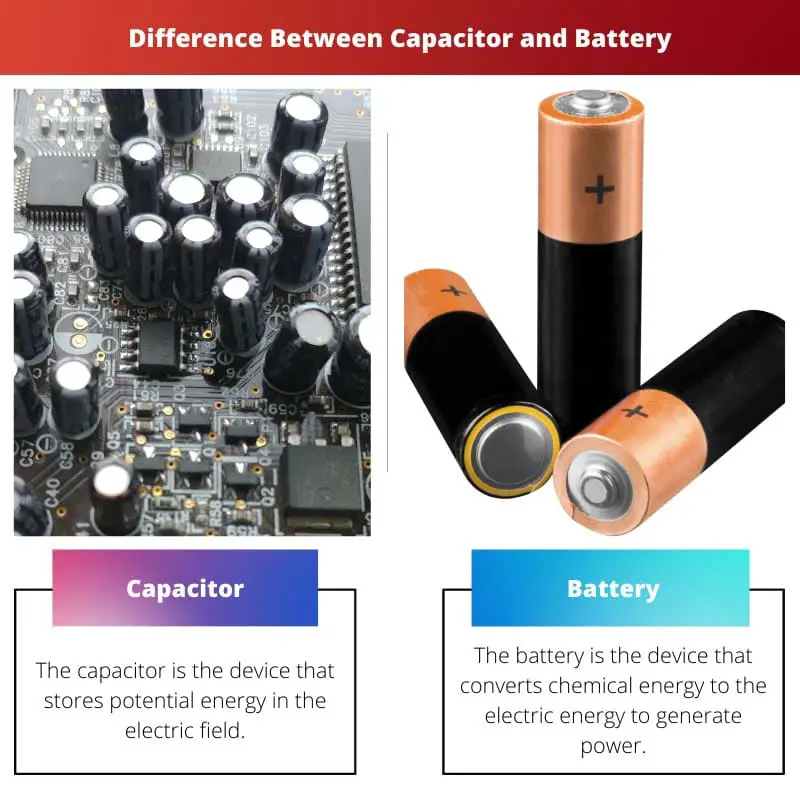Capacitors and Batteries are the two devices that are used extensively in the field of electricity generation and storage. These two terms are used interchangeably but imply entirely different meanings.
Key Takeaways
- A capacitor is an electronic component that stores and releases electrical energy in an electric field, capable of rapid charging and discharging but with limited energy storage capacity.
- A battery is an electrochemical device that stores and releases electrical energy through chemical reactions, providing longer-lasting power but slower charging and discharging rates than capacitors.
- Capacitors and batteries serve different purposes in electronic circuits, with capacitors providing short bursts of energy and batteries supplying long-term power.
Capacitor vs Battery
Capacitor is a passive electronic device that stores energy in form of electric charge. It has a greater power density and works with both AC and DC. A battery is an active electronic device that converts chemical energy into electrical energy for power. It has a higher energy density and only works with DC.

The capacitor is the device that stores electrostatic energy in the electric field. In contrast, Battery is a device that converts chemical energy into electrical energy that can be used for various purposes.
Battery involves electrostatic reactions that work on the transfer principle of electrons.
Another difference between the two devices is that the capacitor stores and releases energy non-linearly, whereas Battery allows a linear power flow when required.
Capacitors are more expensive than batteries. Batteries can be of different types depending on the requirement.
Comparison Table
| Parameters of Comparison | Capacitor | Battery |
|---|---|---|
| Definition | The capacitor is the device that stores potential energy in the electric field. | The battery is the device that converts chemical energy to electric energy to generate power. |
| Durability | The capacitor is considered the passive component of the circuit because it charges and discharges immediately. | The battery is considered the active component of the circuit because it provides a continuous supply of energy. |
| Energy density | They have lower energy density than batteries. | Batteries have a high energy density than capacitors. |
| Voltage | The voltage of the capacitors decreases rapidly in the absence of charge. | The battery provides a constant voltage while discharging. |
| Made up of | Capacitors are made up of thin sheet metals separated by insulators. | The battery comprises metals and chemicals that convert into electric energy. |
What is Capacitor?
A capacitor is a device that stores energy in a circuit. It stores the potential energy or the electrostatic energy in the electric field.
A capacitor consists of two parallel plates separated by the dielectric medium. It draws energy from the circuit, stores and then releases it. It is helpful for applications run by the AC (alternating current) because it blocks the DC (direct current).
Some of the critical features of a capacitor are as follows:
- It stores energy in the form of an electric field.
- The voltage of a capacitor gets decreases rapidly when disconnected.
- Charging and discharging of the capacitor occur at a high rate.
- Capacitors are of three types- ceramic, tantalum, and electrolytic.
- They are the passive component of the circuit.
A capacitor comprises several parallel plates separated by the dielectric medium, and this dielectric medium decides the type of capacitor.

What is Battery?
A battery is a device used to generate a continuous power supply. It converts chemical energy into electrical energy with the help of an electrochemical reaction based on electron transfer.
A battery is made up of metals and certain chemicals. It stores potential energy in the form of chemicals and releases it as chemical energy.
A battery consists of two electrodes (cathode and anode) and a chemical filled inside it known as an electrolyte.
Some of the critical aspects of a battery are listed below:
- It stores potential energy in the form of chemical energy.
- It provides a continuous supply of DC (direct current).
- A battery offers constant voltage while discharging.
- It is an active circuit component because it provides energy to the course.
- The charging and discharging of the battery happen through a chemical reaction that produces voltage.
Batteries can be of various types, such as zinc-carbon, lithium-lithium ion, nickel cadmium, etc.

Main Differences Between Capacitor and Battery
- A capacitor is a device that stores electrostatic energy in the electric field, whereas Battery stores the potential energy in chemical energy.
- In a capacitor, the charging and discharging occur rapidly, whereas in a Battery, charging and discharging occurs slowly.
- The voltage of the capacitor decreases rapidly when disconnected, whereas the voltage of a Battery doesn’t decrease rapidly.
- The battery is the active component of the circuit because it provides energy to the circuit, whereas the Capacitor is the passive component of the course.
- A capacitor consists of parallel plates separated by the dielectric medium, whereas Battery consists of two electrodes and a chemical called electrolyte.

- https://www.sciencedirect.com/science/article/pii/S0378775304003052
- https://pubs.rsc.org/ko/content/articlehtml/2012/ra/c2ra22265e

The language used in the article is a bit too technical for the average reader. It could have been more reader-friendly.
I see what you mean. Perhaps simplifying the terminology would enhance its accessibility.
I feel that the detailed description of capacitors and batteries could greatly benefit students studying electrical engineering. It provides comprehensive and precise information on the topic.
I share the same opinion. The blog post seems like an excellent resource for aspiring electrical engineers.
The comparison table provided in this blog post is extremely helpful. It makes the differences between capacitors and batteries crystal clear.
Indeed, the comparison table does a great job at highlighting the contrasting features of these two components.
I expected the article to mention more about the environmental impact of capacitors and batteries manufacturing, but it was informative nonetheless.
This is a valid critique. It would have been beneficial to include environmental considerations in the comparison.
Interesting point! It’s an aspect that would have added even more depth to the discussion.
The way the post breaks down the key takeaways is commendable. It offers a clear understanding of the essential differences between capacitors and batteries.
Absolutely, the clarity in the key takeaways is praiseworthy.
An in-depth analysis of capacitors and batteries is presented here. Such pieces are valuable for those in the field of electrical engineering.
Absolutely, this is a highly informative read for anyone with an interest in electrical engineering.
I couldn’t contain my laughter reading this. The author humorously dissects the comparability of capacitors and batteries.
Agreed, this post manages to deliver informative content in a whimsical manner.
I appreciate the author’s light-hearted yet educational approach.
The author does an excellent job of putting the spotlight on the intricate differences between capacitors and batteries. Kudos to them.
Indeed, their attention to detail in explaining these differences is commendable.
A fantastic exploration of the fundamental dissimilarities between capacitors and batteries. I thoroughly enjoyed reading it!
Glad to hear your thoughts. It’s a genuinely insightful piece.
I concur. The article provides a comprehensive yet concise look at these two electrical components.
This article truly delves deep into the specifics of how capacitors and batteries differ from one another. The piece was well-written and incredibly informative. Well done!
Absolutely, I couldn’t agree more. It’s an enlightening read.